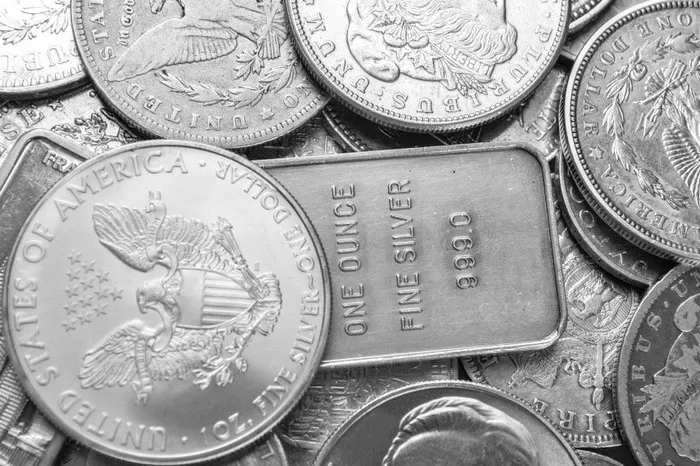Investing in precious metals like silver can be a prudent move to diversify your investment portfolio and hedge against economic uncertainties. Among the various forms of silver investments, bullion and coins are two popular options. Both have their own advantages and drawbacks, making the choice between them a matter of personal preference and investment goals. In this comprehensive guide, we’ll explore the differences between silver bullion and coins to help you make an informed decision.
Understanding Silver Bullion and Coins
Before delving into the comparison, let’s define silver bullion and coins:
1. Silver Bullion: Bullion refers to silver bars or ingots typically produced by private mints or government mints. These bars come in various sizes and weights, ranging from small fractional pieces to large bars weighing several kilograms. Silver bullion is primarily valued based on its weight and purity.
2. Silver Coins: Silver coins are legal tender coins minted by government mints or sovereign mints. These coins often have a face value and are recognized as legal tender in their respective countries. Silver coins can vary in purity, weight, and design, and they may carry a numismatic premium depending on factors like rarity, historical significance, and condition.
Factors to Consider When Choosing Between Silver Bullion and Coins
Several factors should be taken into account when deciding whether to invest in silver bullion or coins:
1. Purity and Weight: Silver bullion typically comes in high purity, such as .999 or .9999 fine silver, and its weight is measured in troy ounces. On the other hand, silver coins may have varying levels of purity and can be minted in fractional weights like 1/10 oz, 1/4 oz, 1/2 oz, or 1 oz. If purity and weight consistency are crucial to your investment strategy, bullion bars may be preferable.
2. Premiums and Costs: Silver coins often carry a higher premium over the spot price of silver compared to bullion bars. This premium accounts for factors such as minting costs, numismatic value, and collector demand. Investors should weigh the premium against the potential benefits of liquidity and ease of resale that coins may offer.
3. Liquidity and Recognizability: Government-minted silver coins, especially those from reputable mints like the United States Mint or the Royal Canadian Mint, enjoy widespread recognition and acceptance. They are easily tradable and recognizable by dealers and investors worldwide. However, silver bullion bars from reputable refiners also hold significant liquidity in the precious metals market.
4. Collector Appeal: Some investors are drawn to the aesthetic appeal and historical significance of silver coins, which can enhance their collector value beyond the intrinsic value of the metal. Coin collectors often seek out rare or limited-edition coins, which can appreciate in value over time. If you’re interested in numismatics or collectible coins, coins may be the preferred choice.
5. Storage and Security: Silver bars are generally easier to stack and store due to their uniform shape and size, making them more space-efficient than coins. However, coins offer the advantage of divisibility, allowing investors to liquidate a portion of their holdings without having to sell an entire bar. Proper storage and security measures are essential for both bullion and coins to protect against theft or damage.
6. Tax Considerations: In some jurisdictions, there may be differences in tax treatment between silver bullion and coins. For instance, certain coins may be exempt from sales tax or capital gains tax, whereas bullion bars may not enjoy the same exemptions. Investors should consult with tax advisors or research the relevant tax laws in their jurisdiction before making a decision.
Conclusion
Whether you choose to invest in silver bullion or coins depends on your individual preferences, investment objectives, and risk tolerance. Both forms of silver offer a tangible asset with intrinsic value and can serve as a hedge against inflation, currency devaluation, and geopolitical uncertainties. Ultimately, a well-balanced investment portfolio may include a combination of silver bullion and coins to diversify risk and maximize potential returns.
Before making any investment decisions, it’s essential to conduct thorough research, consider your financial goals, and seek advice from qualified professionals. By carefully evaluating the factors outlined in this guide, you can make an informed choice that aligns with your investment strategy and objectives. Whether you opt for silver bullion bars or coins, remember to stay informed about market trends and regularly review your portfolio to ensure it remains aligned with your long-term goals.


